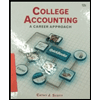
Concept explainers
Ethics and
You are the accountant for Nello Company, which manufactures specialty equipment. Nello has been in financial difficulty, so its suppliers require purchases to he paid in cash. Furthermore, Nello has long-term debt with a debt covenant that requires it to maintain a 1:1 acid-test (quick) ratio. Nello’s employees work a 5-day week, Monday through Friday.
On Wednesday morning during the last week of the current year, Sam (the production supervisor) comes to you and says, “I don’t understand it. We have this large special order from a customer that must be delivered at the end of the first week in January. Once we get the raw materials, it is going to take 5 solid days of work without overtime to produce the order. If Bob (the president) would let me order the raw materials this morning, we could have them by late today. This would give us 2 days this week and the 4 days after New Year’s Day (Monday) of next week to complete the order without incurring overtime costs. But Bob says we must wait until next Tuesday to order the materials. This means we will have to work double time that Wednesday through Friday to finish the order. That overtime cost is going to really increase next year’s factory salary expense, so our profit and operating cash flows from that order will be very low. Please talk to him.”
When you approach Bob about buying the raw materials this morning, he says, “If we purchase those materials today, we will have to write a check. And that means our cash flow from operating activities for this year will be much lower, which our shareholders won’t like. Furthermore, our quick ratio will go down from 1.01:1 to 0.90:1, so our creditors may be upset. I know our profit and operating cash flows for next year will be lower if we delay the purchase, but that seems to be the best decision. Don’t you agree?”
Required:
From financial reporting and ethical perspectives, how would you respond to Bob?
Want to see the full answer?
Check out a sample textbook solution
Chapter 21 Solutions
Intermediate Accounting: Reporting And Analysis
 College Accounting (Book Only): A Career ApproachAccountingISBN:9781337280570Author:Scott, Cathy J.Publisher:South-Western College Pub
College Accounting (Book Only): A Career ApproachAccountingISBN:9781337280570Author:Scott, Cathy J.Publisher:South-Western College Pub College Accounting (Book Only): A Career ApproachAccountingISBN:9781305084087Author:Cathy J. ScottPublisher:Cengage Learning
College Accounting (Book Only): A Career ApproachAccountingISBN:9781305084087Author:Cathy J. ScottPublisher:Cengage Learning- Principles of Accounting Volume 1AccountingISBN:9781947172685Author:OpenStaxPublisher:OpenStax College
 Individual Income TaxesAccountingISBN:9780357109731Author:HoffmanPublisher:CENGAGE LEARNING - CONSIGNMENT
Individual Income TaxesAccountingISBN:9780357109731Author:HoffmanPublisher:CENGAGE LEARNING - CONSIGNMENT





